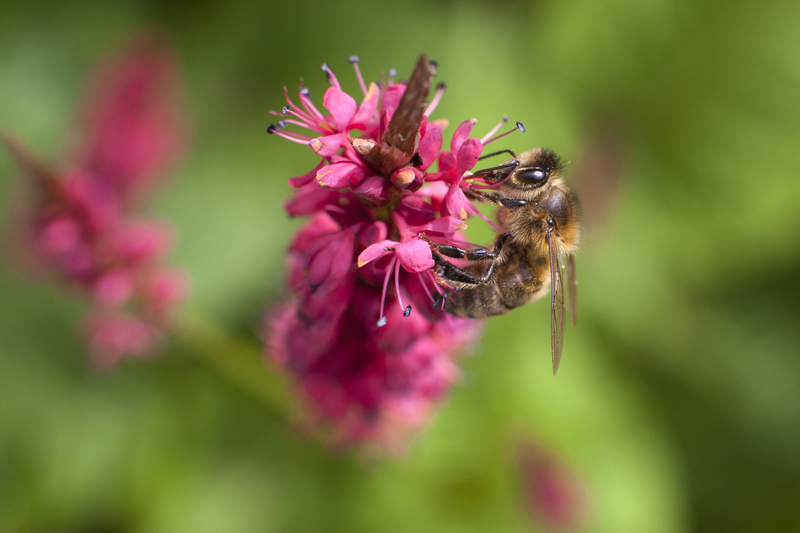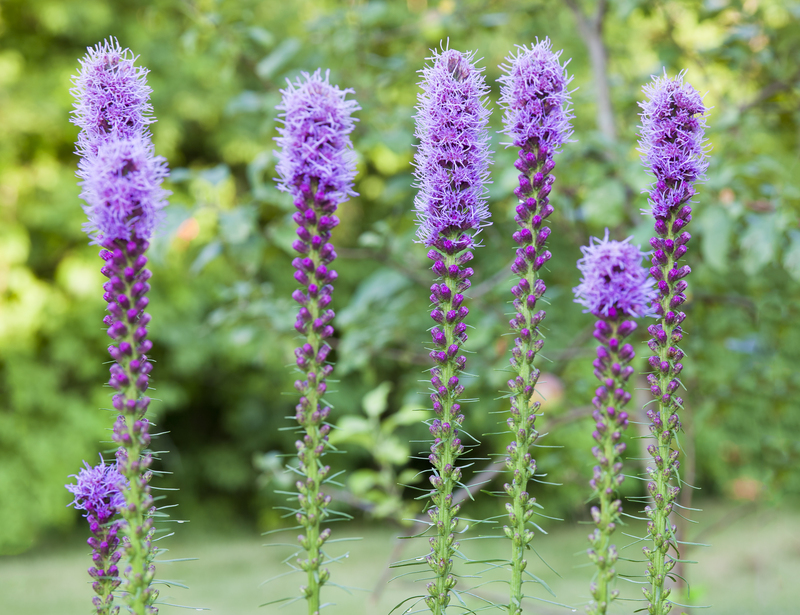Enhancing Garden Vitality with Organic Waste Derived Soil
Posted on 19/06/2025
Enhancing Garden Vitality with Organic Waste Derived Soil
In the quest for healthier, more productive, and eco-friendly gardens, organic waste derived soil is rapidly becoming the gardener's secret weapon. By recycling kitchen scraps, yard clippings, and other biodegradable waste, you can create nutrient-rich soils that not only boost plant growth but also support environmental sustainability. In this detailed guide, we'll explore how using soil derived from organic waste transforms gardens, why it's superior to conventional soil amendments, and easy steps to start enriching your own garden today.

What is Organic Waste Derived Soil?
Organic waste derived soil refers to soil amendments or complete soils created from the decomposition of organic materials--such as vegetable peels, fruit scraps, coffee grounds, eggshells, lawn trimmings, and leaves. This process, called composting, transforms waste into humus-rich soil loaded with nutrients and beneficial microorganisms. Unlike synthetic fertilizers which may disrupt the delicate ecosystem of your garden, compost-based soil fortifies your garden naturally, creating a more robust and resilient landscape.
The Natural Cycle: Turning Waste into Wealth
- Reduction of landfill waste: Composting organic waste keeps biodegradable materials out of dumpsites, reducing greenhouse gas emissions.
- Closed nutrient loops: Nutrients extracted by plants from the earth are returned when plant and food waste is composted, creating a sustainable cycle.
- Financial savings: By reusing household and garden waste, you cut back on the need for commercial soil conditioners and fertilizers.
Why Choose Soil Derived from Organic Waste?
The impact of organic waste-based soil reaches far beyond simple plant nutrition. Discover below the broad range of benefits this eco-friendly soil amendment offers to your garden and the planet.
Rich in Essential Nutrients
Organic compost is an all-natural fertilizer, replete with macronutrients (like nitrogen, phosphorus, and potassium) and micronutrients (such as calcium, magnesium, and iron) vital for healthy plant development.
- Stimulates strong root growth - Roots access nutrients directly, leading to bigger, hardier plants.
- Prevents nutrient leaching - Unlike synthetic fertilizers that can wash away, compost releases nutrients slowly, keeping them available for plant uptake over time.
- Balances soil pH - Compost helps stabilize the acidity or alkalinity of your soil for optimal nutrient absorption.
Boosts Soil Structure and Water Retention
Gardeners aiming for vibrant, resilient plants need to pay attention to soil structure. Organic matter in waste-derived soils binds soil particles together, forming aggregates that enhance aeration and water infiltration.
- Improves drainage in clay soils.
- Raises water-holding capacity of sandy soils.
- Reduces soil compaction and erosion, beautifying your garden for the long term.
Fosters Beneficial Microorganisms
Healthy soils abound with life--bacteria, fungi, nematodes, and earthworms all thrive in compost-enriched ground. These organisms help break down organic material, enhance nutrient availability, and protect plants against pests and diseases naturally.
- Fewer pathogens thanks to a thriving microbial population.
- Stronger plant immunity - Healthy soil supports plants' natural defenses.
- Increased earthworm activity, which aerates and fertilizes the soil.
Reduces Reliance on Synthetic Inputs
Using soil from recycled organic waste means less need for chemical fertilizers and pesticides. This is not only cost-effective and healthy for your garden, but also vastly better for the environment.
How to Create Organic Waste Based Soil at Home
Step 1: Gather Your Organic Matter
- Kitchen scraps - Fruit peels, vegetable trimmings, coffee grounds, eggshells.
- Yard waste - Grass clippings, small prunings, leaves, and plant stalks.
- Other biodegradable materials - Cardboard, paper, untreated wood shavings.
Step 2: Build Your Compost Heap or Bin
Choose a spot in your garden for your compost pile or invest in a composting bin. Alternate layers of "greens" (nitrogen-rich materials like fresh grass or food scraps) with "browns" (carbon-rich items like dry leaves or cardboard). This layering speeds up decomposition and keeps your pile from becoming too wet or smelly.
- Keep the pile moist but not soggy.
- Turn weekly to add oxygen, which speeds up breakdown.
- Aim for a balanced mix of greens and browns.
Step 3: Let Nature Work
Within weeks to a few months, your waste will break down into dark, crumbly, earthy-smelling compost. This is your homemade organic waste derived soil amendment! Sift out any large or undecomposed pieces and return them to the pile for continued composting.
Step 4: Apply to Garden Beds
Sprinkle your finished compost across garden beds, work it gently into the topsoil, or use it as mulch around fruit trees, shrubs, and veggies.
- Apply compost in early spring and autumn for best results.
- Use 2-4 inches as a mulch or mix 1 part compost with 2-3 parts garden soil for planting.
Different Types of Organic Waste Derived Soils
Depending on the type of composting process and raw materials used, you can create various forms of soil from organic waste:
- Backyard compost: Traditional heap or bin from household and garden scraps.
- Vermicompost: Using worms to process waste, producing super-rich castings.
- Bokashi compost: Anaerobic (without oxygen) fermentation, even for kitchen waste like meat and dairy.
- Leaf mold: Composted fallen leaves, ideal for improving soil structure.
Choosing the Right Compost Type
For vegetable gardens and flowers, standard backyard compost or vermicompost offer the best nutrient profiles. Leaf mold works wonders as a mulch or soil conditioner in ornamental beds.
Tips for Maximizing Garden Vigor with Organic Waste Soils
Regular Enrichment
Replenish garden soils annually with fresh compost, focusing on areas with heavy feeders such as tomatoes, roses, or fruit trees.
Monitor Soil Health
Test your soil's pH and nutrients regularly. Adjust compost applications as necessary, and avoid overusing chemically derived products that could harm your organic ecosystem.
Encourage Biodiversity
- Grow a variety of plants to support a healthy soil food web.
- Mulch bare soil with organic material to prevent erosion and retain moisture.
Compost Everything You Can
Challenge yourself to minimize the waste your household sends to landfill by composting as much as possible. Avoid adding dairy, meat, and fatty foods to traditional compost to prevent odors and pests.
Frequently Asked Questions about Organic Waste Derived Soils
Will compost-based soil attract pests?
Properly made compost reaches high temperatures that kill off weed seeds, pathogens, and insect eggs. Keep food scraps covered with dry carbon material to avoid unwelcome wildlife.
How soon can I use my compost?
Finished organic waste-derived compost should be dark, crumbly, and smell sweet or earthy. Depending on temperature and materials, this can take from two months to a year.
Can I use compost for potted plants?
Yes! Mix compost with potting soil at a ratio of 1:2 or 1:3 for healthy container plants.

The Environmental Impact of Using Organic Waste Derived Soil
Embracing recycled organic materials for soil improvement is a small step that makes a big difference for the planet.
- Reduces methane emissions from landfill waste.
- Decreases dependence on fossil fuel-based fertilizers.
- Enhances carbon sequestration in your garden soil.
Conclusion: A Greener, More Productive Garden Awaits
Enhancing your garden's vitality with organic waste derived soil is a smart, sustainable, and satisfying strategy. From lush flowers to bumper crops of fruits and vegetables, your garden will reward you with vigorous growth and natural beauty. Start composting today, and turn your household and yard waste into a thriving, living resource that enriches both your green spaces and the planet.
Ready to Transform Your Garden?
Take the plunge into organic waste recycling--the soil (and your plants) will thank you. Experience healthier harvests, richer blooms, and the deep satisfaction that comes from gardening with nature--not against it.

